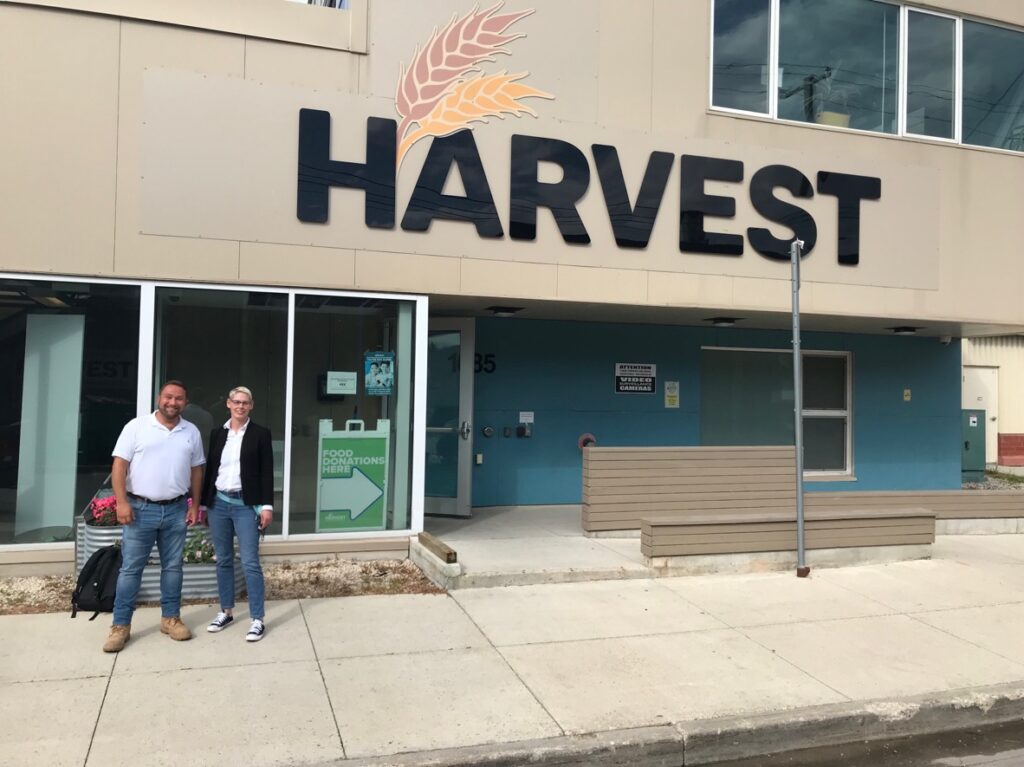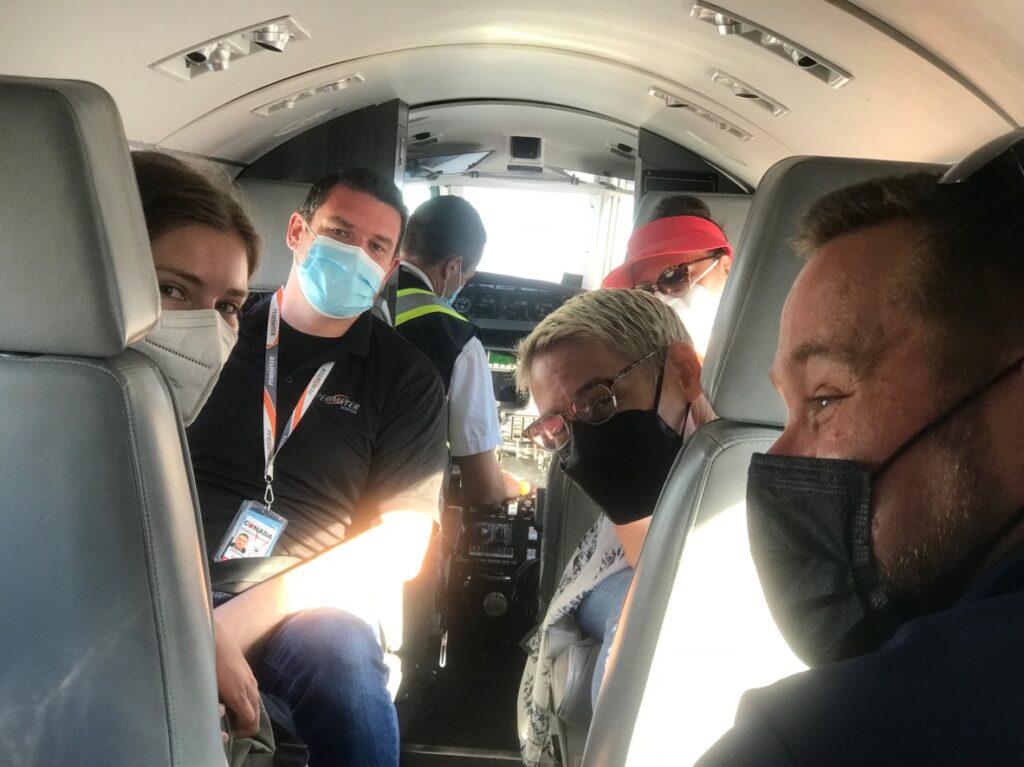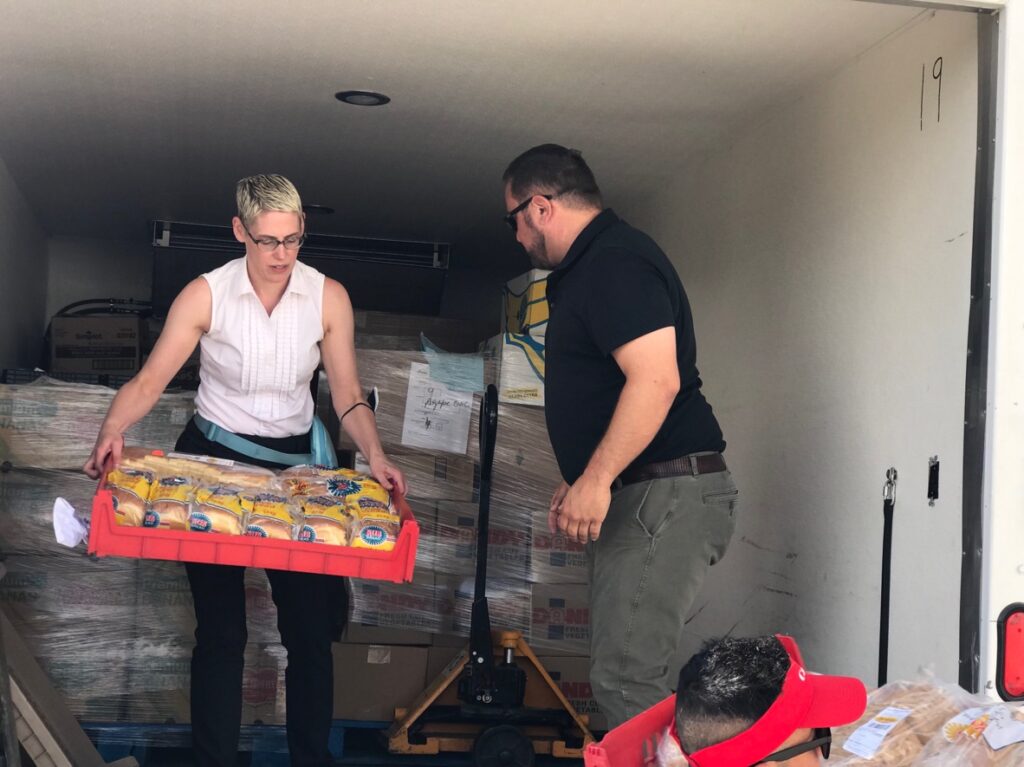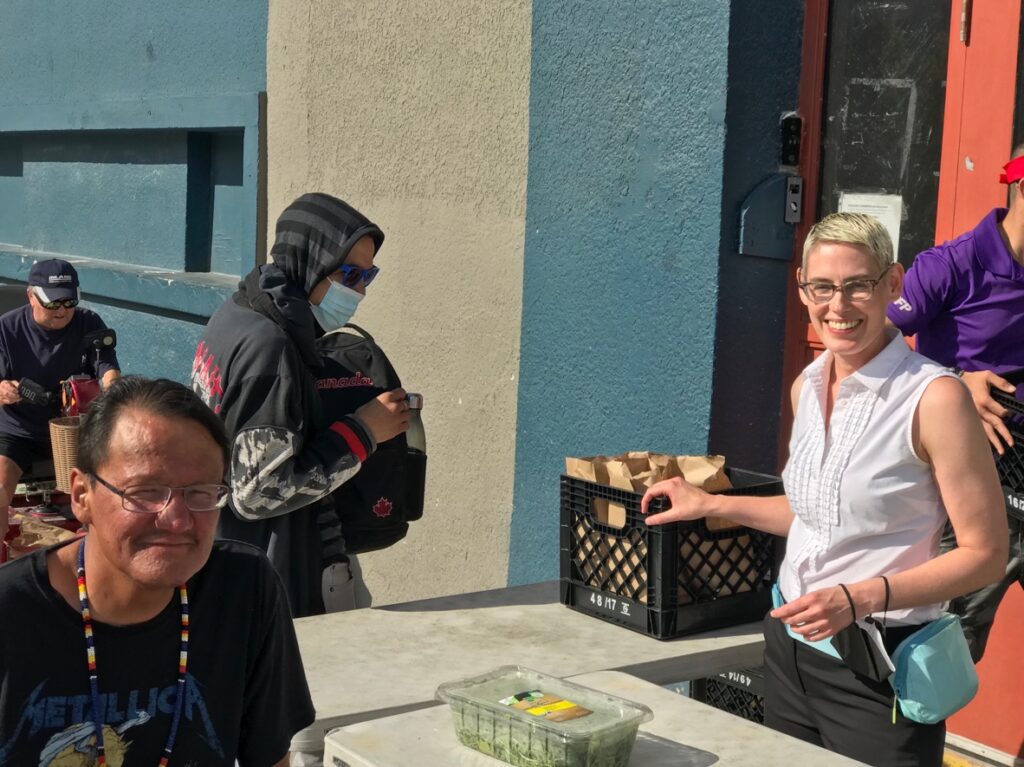Food Banks Canada is committed to truth and reconciliation with Indigenous peoples and building positive relationships with Indigenous communities across Canada.
As our CEO, Kirstin Beardsley, told the Toronto Star for a story on why food alone won’t solve hunger, building partnerships with Indigenous communities is “about that community being in the driver’s seat, in terms of what solutions work for them, and working with them to figure out how Food Banks Canada can support those solutions and opportunities.”
‘It’s about that community being in the driver’s seat’
As Food Banks Canada commits to implementing the calls to action made by the Truth and Reconciliation Commission, we know that First Nations, Métis and Inuit communities being in the driver’s seat will be essential to prioritizing the recognition of traditional knowledge and advancing the food security and food sovereignty of Indigenous peoples across the country.
To increase our focus on building partnerships with Indigenous communities in the North, where people are facing highly elevated levels of food insecurity, Food Banks Canada has hired our first northern program officer, Jason Stevens, who is from the Sapotaweyak Cree Nation in the Treaty 4 Territory.


Since joining Food Banks Canada in 2021, Stevens has been helping our network of over 4,750 hunger relief organizations reach more northern and Indigenous communities by making phone calls; connecting with Indigenous organizations at the local, provincial and national levels to support food security initiatives; and building relationships with Indigenous leaders who are working to address local food insecurity and diet-related disease.
‘Change moves at the speed of trust’
Because change moves at the speed of trust, as Beardsley says, building these relationships with Indigenous communities in Northern Canada can sometimes take boarding a vehicle yourself to initiate face-to-face contact and come together in ceremony.
That’s why Beardsley and Stevens, at the invitation of Harvest Manitoba President and CEO Vince Barletta, travelled thousands of kilometres in August 2022 to deliver 5,000 pounds of food to the remote and northern Manitoba community of St. Theresa Point, where food insecurity continues to be a critical issue.

Located about 500 kilometres north of Winnipeg, the isolated community is only accessible by air or ice roads in the winter.
“Every step of getting food into the community is a challenge,” Beardsley said, adding that the St. Theresa Point Airport is located on a small island.

“This incurs extra costs daily due to the price of fuel and loading shipments of food on and off the barge,” Stevens explained. “At the end of the day, all of that gets tallied onto the price of the food items, making them prohibitively expensive for many community members.”
In addition to delivering much-needed food items to local individuals and families facing food insecurity, Beardsley and Stevens’ visit to St. Theresa Point included a tour and a discussion about the challenges of bringing sufficient, safe and nutritious food to the community.
“The next step will be building out an agreement for how we will work together to address these issues,” Stevens said, adding that one of the ideas being discussed is support for the traditional hunt to help get more healthy country foods into the hands of community members.


Food Banks Canada CEO Kirstin Beardsley is pictured in August 2022 at Agape Table, an agency of Harvest Manitoba, distributing a mix of perishable and non-perishable food items to clients in need.
Some of the leadership from St. Theresa Point are also planning a visit to Harvest Manitoba to learn more about the non-profit organization, which collects and shares 11 million pounds of healthy and nutritious food with hungry Manitobans every year as one of Food Banks Canada’s 10 provincial associations.
“That was another big step,” Stevens said, especially since people in St. Theresa Point who require specialized health services must often travel long distances south to Winnipeg to receive them. “Delivering that message to local community members that Harvest Manitoba’s services are there and available will help ensure they have access to food while they’re in the city.”
Enhancing measures to reduce northern food insecurity
Food-driven solutions can only do so much to help remote and northern communities like St. Theresa Point in the long-term. That’s why the federal government must also review its entire approach to the root causes of food insecurity in the North if significant progress is to be achieved.
Food Banks Canada’s recommendations include immediately working toward a Minimum Income Floor and away from the current broken social assistance system that keeps far too many Northern Canadians in a cycle of poverty and food insecurity.
